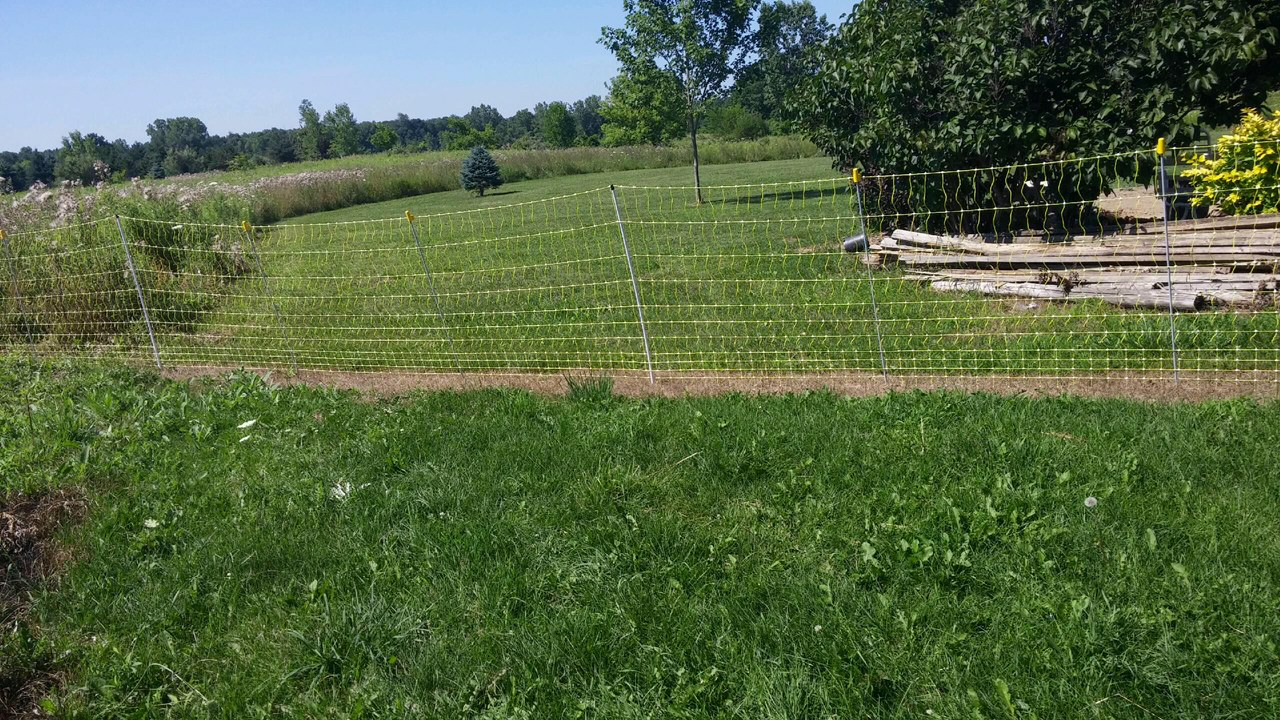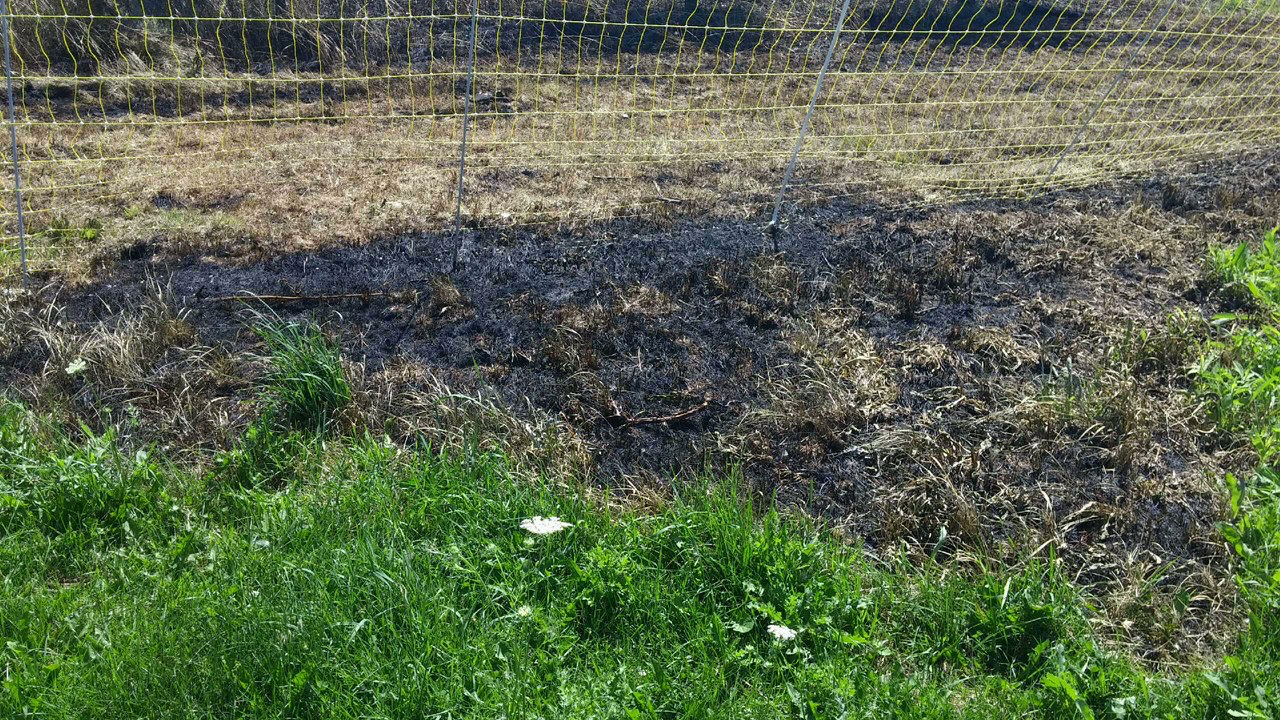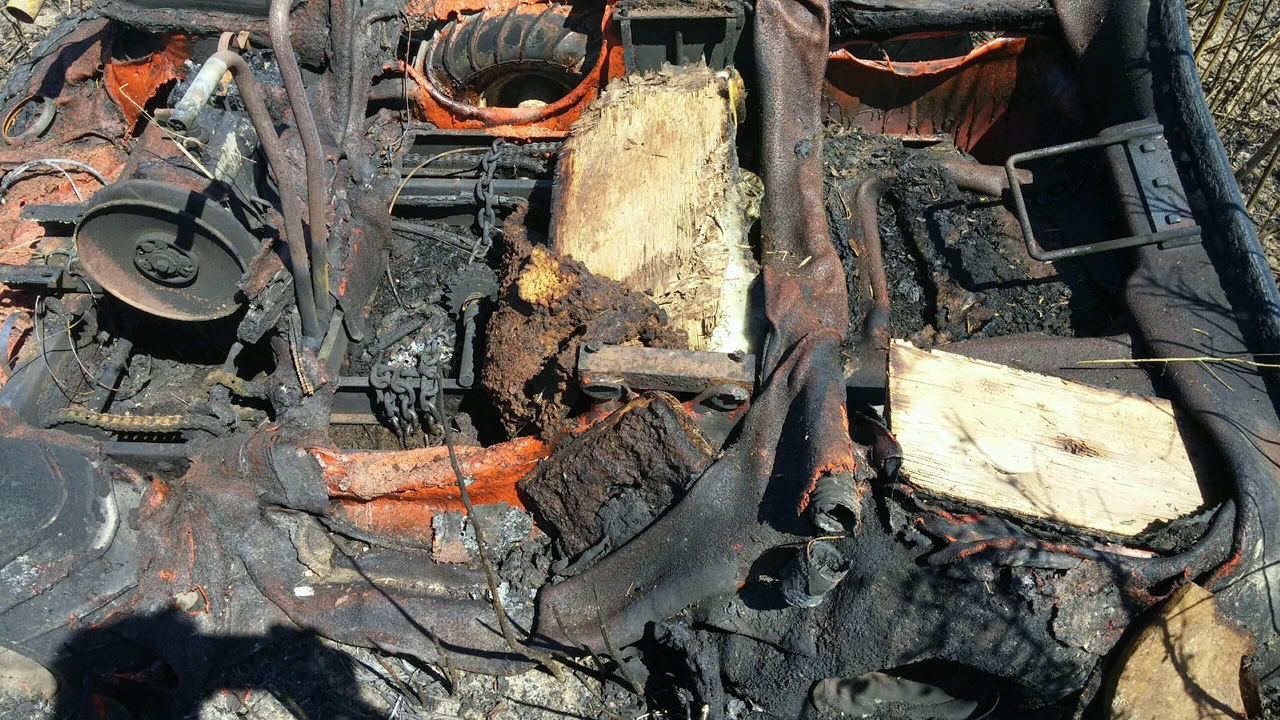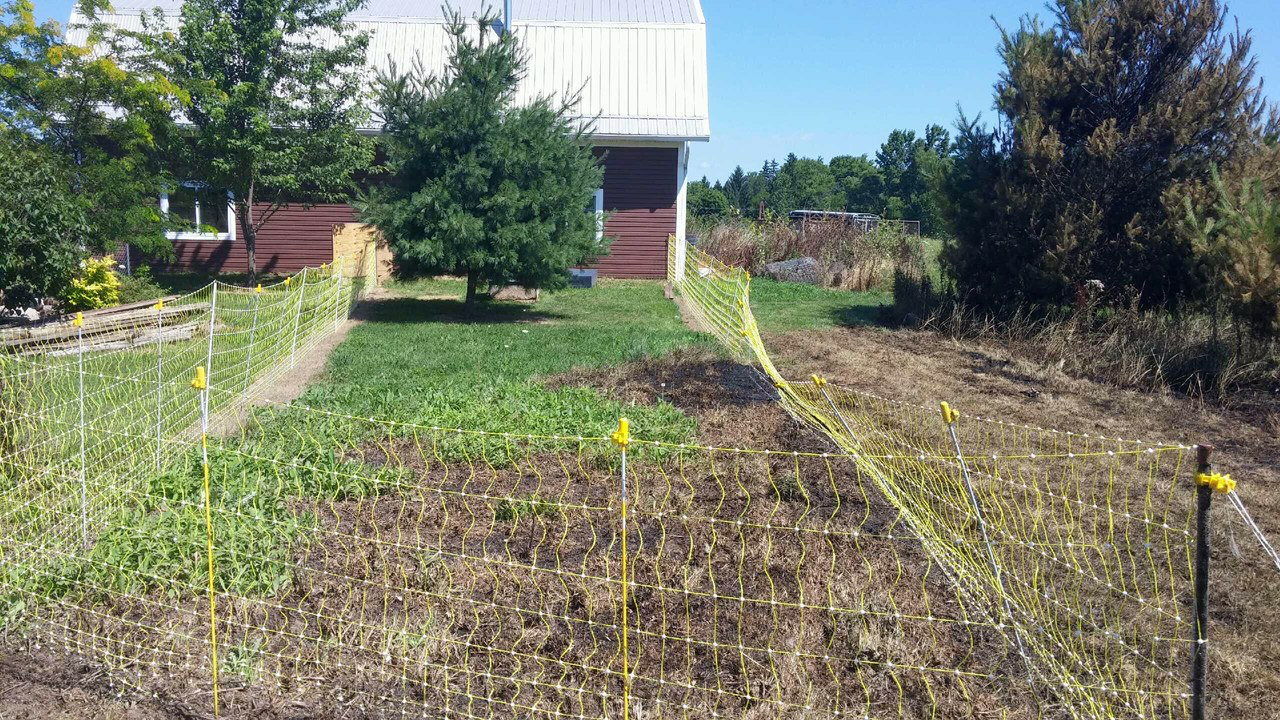
Avoid “Continuous Current” Energizers for Electric Fence
A fire broke out on a property, burning grass, trees, and even a six-wheeled UTV, and it came dangerously close to a barn—just 30 feet away—when the fire department arrived. The cause of the fire was traced back to a specific choice made by the property owner: they had purchased both an energizer and a section of electrified netting from an online store, relying on the site’s “Frequently Bought Together” recommendations and reviews to make their decision.
At no point did the online platform provide any warning about the potential risks of using this particular energizer with electrified netting. There was no mention of fire hazards or damage that could occur when the two were used together.
The result was devastating: the fire destroyed a six-wheel UTV and posed a significant threat to other property nearby.
Was the netting the cause of the fire? Absolutely not. The fire would not have happened if the property owner had chosen the right type of energizer for the netting, one that was designed for safe use with electrified fences.
What about if the fence wasn’t netting? Would the fire still have occurred? The risk of fire can arise when a "continuous current" energizer is used with any type of conductor—whether that be netting, tape, rope, twine, or wire—that is in contact with combustible materials like dry grass, leaves, or straw. Since netting for animals often has conductors that are close to the ground, sometimes even touching dry grass or leaves, it’s an added risk.
A 6 wheel UTV that was destroyed by the fire.
So it was the type of energizer (not the brand) that caused this fire?
Yes. What enabled this unit to cause a fire for this user is that it, as its front label indicates, is a “continuous current” fence energizer.
What is a continuous current energizer?
It’s a very old design that is cheap to manufacture—thus the “attractive” low retail price.
However, unlike 95% of the energizers sold today, it does not release an intermittent pulse. Instead, it charges/energizes the wire continuously at, as the label on this energizer indicates, not more than 1200 volts.
When a conductor (wire, tape, twine, rope, netting strand) connected to this energizer contacts a conductive path to the soil (slightly green weed, twig, stray piece of metal wire, or dry weed that’s wet from dew or rain) a continuous flow of electricity flows down this path to the soil creating an almost audible “buzz.”
If the right conditions are present it does not take long for the buzz (similar to that of backyard bug zappers) to build up enough heat to ignite any combustible material adjacent to the “buzz point.”
When purchasing an energizer for your electric fence, it's important to buy from a company that specializes in electric fencing. These specialists have the knowledge and expertise to help you choose the right energizer for your specific needs.
Key Considerations:
Choose the Right Power (Joules)
Make sure to select an energizer with enough power (measured in joules of output) to be effective for your situation. The size of the energizer will depend on factors such as:The type of animal you're fencing in or out
The size of the area you’re working with
Avoid Underpowered Energizers
Be cautious of products recommended by general platforms or marketplaces, as they may suggest energizers that are too weak for your needs.Don’t Rely Solely on Online Reviews
While reviews can be helpful, they can also be misleading. Some reviews for continuous current energizers, for example, have proven to be dangerously inaccurate.Seek Expert Advice
If you’re unsure about which energizer is right for your project, contact a fence specialist. Specialists have years of experience and can offer valuable guidance.

The user had killed the grass under the fence with a herbicide before installing the netting.
The fire was 30 ft from the barn and house when the fire dept. arrived. It could have been much worse.
Understanding the Difference Between Pulsed and Continuous Current Energizers
When choosing an energizer for your electric fence, it’s essential to understand the difference between pulsed energizers and continuous current energizers, as the wrong choice could lead to issues such as fire risks or equipment damage.
How Do Pulsed Energizers Work?
Most modern pulsed energizers work by sending high voltage pulses (typically between 2000-6000 volts) down the conductor. These pulses are very brief—lasting less than 3/10,000 of a second—and occur every 1-2 seconds. Despite their power, these pulses are too brief and infrequent to build up enough heat to pose a fire risk, even when the conductor is near combustible materials like dry grass or leaves.
This type of energizer is safe and effective for both livestock and poultry. The short pulse duration ensures that animals are deterred without the risk of ignition or excessive heat buildup.
The Issue with Continuous Current Energizers
Continuous current energizers, on the other hand, supply a constant flow of electricity, as opposed to pulses. These units have been available for decades and, despite their lower price, are not suitable for use with electrified fences designed for animals or poultry.
Here’s why:
Constant power flow can cause heat buildup, especially when the conductor (such as netting, tape, or wire) comes into contact with combustible materials.
Over time, this heat can melt the plastic strands in netting or other materials, leading to damage and, in some cases, a fire risk.
Why is This a Concern?
Many online stores or platforms may automatically suggest a combination of electric fence products that may seem compatible based on price or popularity, but they may not be ideal for your specific needs. For example, some systems that are continuously powered can be linked with netting or materials that are too sensitive to constant current, which can cause dangerous situations.
The Dangers of Misinformation
While reviews and product suggestions might be based on user feedback or automated algorithms, they can sometimes provide misleading information. This is why it's essential to rely on electric fence specialists for guidance rather than generic sales advice.
If you’re unsure about which energizer is right for your project, be sure to contact a professional who understands the specific requirements of electric fencing. A specialist will help you avoid issues such as overheating or fire risks and ensure that your energizer is correctly sized and suited to your fence type.
Key Takeaways:
Pulsed Energizers are the safe, standard option for electric fences. They deliver brief pulses that don’t overheat or pose a fire risk.
Continuous Current Energizers can damage materials and pose a fire risk, especially when used with electrified netting or other plastic-based fence conductors.
Always consult a fence specialist or trusted source to ensure you’re choosing the right energizer for your electric fence.
For proper installation advice and to ensure you select the correct energizer, it’s best to reach out to a knowledgeable electric fencing expert.









Wuxi, China
Zhihui568, Jianghai Western Road
Wuxi, Jiangsu, China
Head Factory
Area A, Shuangmiao Industrial Park, Wutong Road, Huishan District, Wuxi City, Jiangsu Province, China




